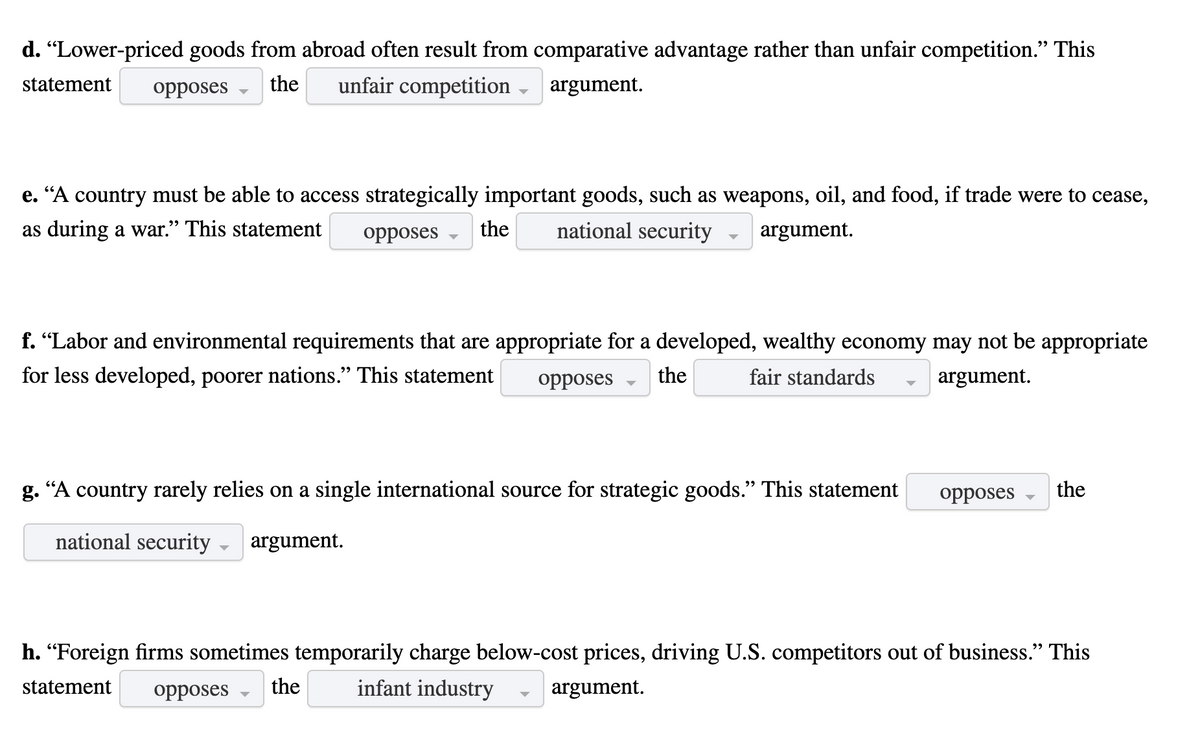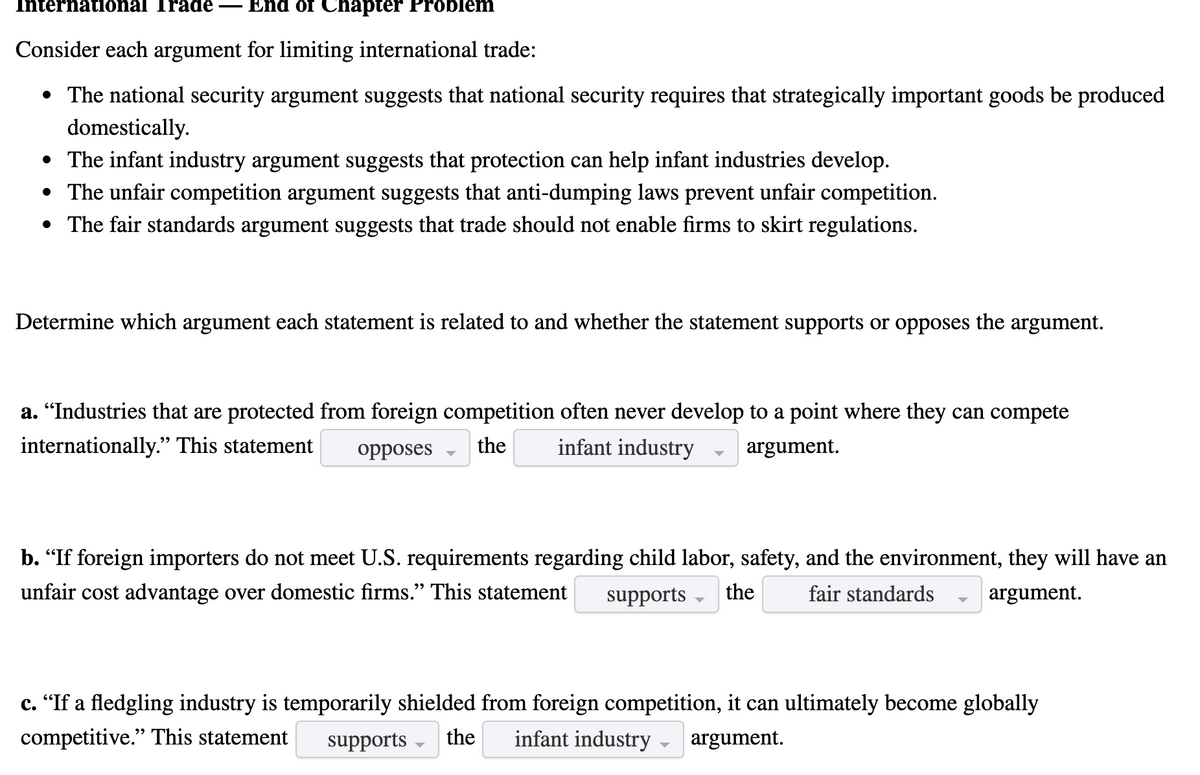d. "Lower-priced goods from abroad often result from comparative advantage rather than unfair competition." This the unfair competition argument. statement opposes -
d. "Lower-priced goods from abroad often result from comparative advantage rather than unfair competition." This the unfair competition argument. statement opposes -
Principles of Microeconomics
7th Edition
ISBN:9781305156050
Author:N. Gregory Mankiw
Publisher:N. Gregory Mankiw
Chapter9: Application: International Trade
Section: Chapter Questions
Problem 5PA
Related questions
Question

Transcribed Image Text:d. "Lower-priced goods from abroad often result from comparative advantage rather than unfair competition." This
22
statement
opposes
the
unfair competition
argument.
e. “A country must be able to access strategically important goods, such as weapons, oil, and food, if trade were to cease,
as during a war." This statement
opposes
the
national security
argument.
f. "Labor and environmental requirements that are appropriate for a developed, wealthy economy may not be appropriate
for less developed, poorer nations." This statement
opposes
the
fair standards
argument.
g. “A country rarely relies on a single international source for strategic goods." This statement
opposes
the
national security
argument.
h. “Foreign firms sometimes temporarily charge below-cost prices, driving U.S. competitors out of business." This
statement
opposes
the
infant industry
argument.

Transcribed Image Text:International Trade
End of Chapter Problem
Consider each argument for limiting international trade:
• The national security argument suggests that national security requires that strategically important goods be produced
domestically.
• The infant industry argument suggests that protection can help infant industries develop.
• The unfair competition argument suggests that anti-dumping laws prevent unfair competition.
• The fair standards argument suggests that trade should not enable firms to skirt regulations.
Determine which argument each statement is related to and whether the statement supports or opposes the argument.
a. "Industries that are protected from foreign competition often never develop to a point where they can compete
internationally." This statement
יל
opposes
the
infant industry
argument.
b. "If foreign importers do not meet U.S. requirements regarding child labor, safety, and the environment, they will have an
unfair cost advantage over domestic firms." This statement
supports
the
fair standards
argument.
c. “If a fledgling industry is temporarily shielded from foreign competition, it can ultimately become globally
competitive." This statement
supports
the
infant industry
argument.
Expert Solution
This question has been solved!
Explore an expertly crafted, step-by-step solution for a thorough understanding of key concepts.
This is a popular solution!
Trending now
This is a popular solution!
Step by step
Solved in 3 steps

Knowledge Booster
Learn more about
Need a deep-dive on the concept behind this application? Look no further. Learn more about this topic, economics and related others by exploring similar questions and additional content below.Recommended textbooks for you

Principles of Microeconomics
Economics
ISBN:
9781305156050
Author:
N. Gregory Mankiw
Publisher:
Cengage Learning

Principles of Macroeconomics (MindTap Course List)
Economics
ISBN:
9781305971509
Author:
N. Gregory Mankiw
Publisher:
Cengage Learning

Principles of Economics 2e
Economics
ISBN:
9781947172364
Author:
Steven A. Greenlaw; David Shapiro
Publisher:
OpenStax

Principles of Microeconomics
Economics
ISBN:
9781305156050
Author:
N. Gregory Mankiw
Publisher:
Cengage Learning

Principles of Macroeconomics (MindTap Course List)
Economics
ISBN:
9781305971509
Author:
N. Gregory Mankiw
Publisher:
Cengage Learning

Principles of Economics 2e
Economics
ISBN:
9781947172364
Author:
Steven A. Greenlaw; David Shapiro
Publisher:
OpenStax



Principles of Economics, 7th Edition (MindTap Cou…
Economics
ISBN:
9781285165875
Author:
N. Gregory Mankiw
Publisher:
Cengage Learning